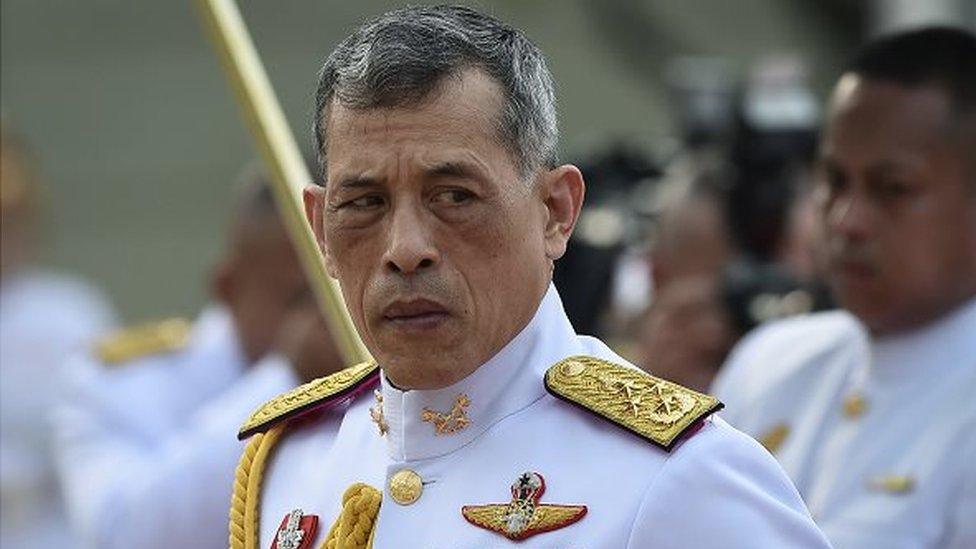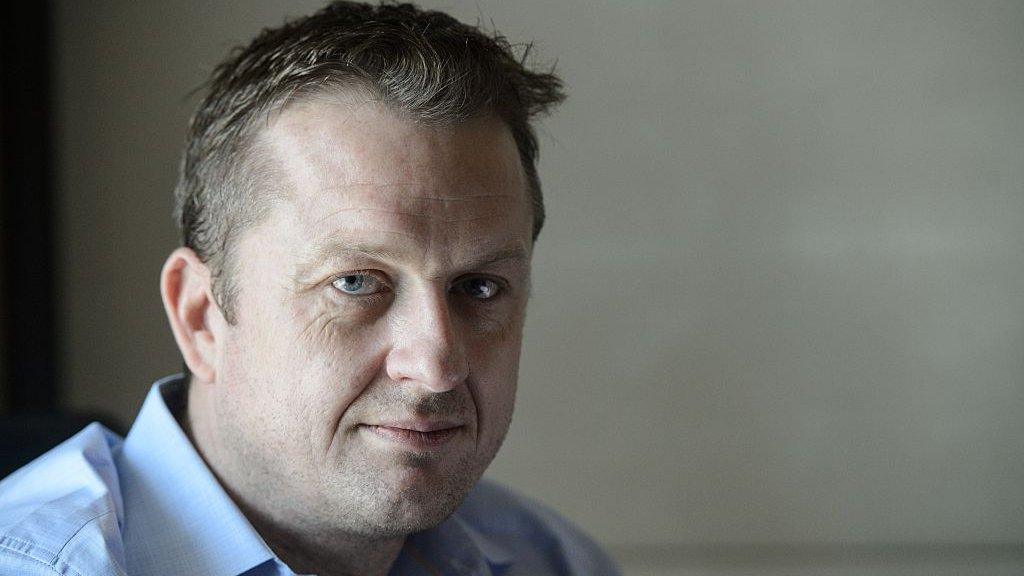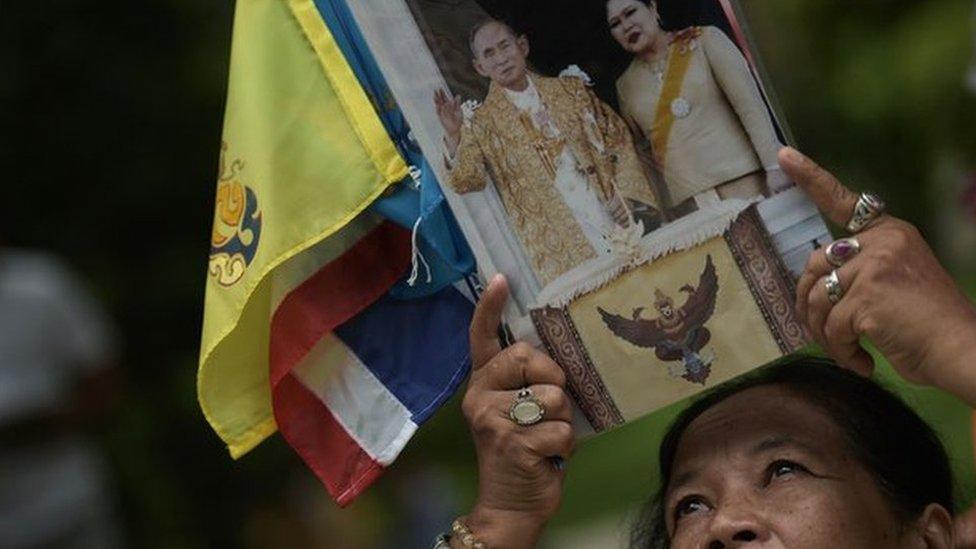Thailand backs off lese-majeste Facebook ban threat
- Published

The authorities are particularly sensitive of content about the new King Vajiralongkorn
Thailand has backed off from a threat to ban Facebook for failing to block illegal content, including posts critical of the monarchy.
The social media network was given a deadline of 10:00 local time (04:00 GMT) to block 131 pages from being seen within Thailand.
But Facebook, and the offending pages, remained accessible on Tuesday.
Authorities said they held off from taking action as court orders were not delivered to Facebook in time.
Illegal content
Authorities had issued their threat to ban and take legal action against Facebook last week.
More than a third of the 131 pages were deemed to have violated Thailand's strict lese-majeste laws, which forbid insults to the royal family.
The rest of the pages were identified to contain other kinds of illegal content such as pornography, phishing scams, and gambling.
After the Tuesday morning deadline had passed, the secretary-general of the Thai telecom regulator Takorn Tantasith told reporters that criminal court orders had been issued for 34 pages, and authorities were seeking court orders for the other 97 pages.
However, none of the documents had been sent to Facebook yet, added Mr Takorn from the National Broadcasting and Telecommunication Commission (NBTC), which meant the pages were still accessible in Thailand.
He also told reporters that Facebook was "co-operating with Thailand".
Facebook has yet to comment publicly on the matter.

Analysis: Jonathan Head, BBC News, Bangkok, Thailand

It isn't clear yet whether a new deadline for compliance has been set.
Facebook has already blocked hundreds of posts considered offensive to the monarchy; thousands of websites have also been blocked.
More than 100 people have been charged under the lese-majeste law since the military seized power three years ago.
Acquittals are rare, and sentences of up to 30 years in prison have been given for using Facebook to post anti-monarchy comments.
The government seems determined to ensure that no material it deems damaging to the monarchy is visible in Thailand, despite the challenge of doing this in an open economy, and in the digital information age.
It is especially sensitive about photographs of the new King Maha Vajiralongkorn which have been circulated by some critics of the monarchy.
The king, who succeeded his father last December, has had a colourful personal life, although the severe lese-majeste law makes any discussion of the monarchy impossible inside Thailand.

In 2015, when Facebook set up an office in Thailand, it said 34 million Thais were using Facebook every month, and that they posted three times more than the global average.
Most social media monitoring companies predict the number of users in Thailand has grown significantly since then.
The firm has previously said it carefully scrutinises requests made by governments wanting to restrict content.
If it determines the content does violate local laws, it makes it unavailable in the country and notifies people who try to access it.
In May 2014, days after the military coup, Thailand blocked access to Facebook, with the Information Communications Technology Ministry saying the order came from the military. The military denied this.
The military government has increased censorship of online content since coming to power - especially criticism of the royal family.
Last month it banned Thais making any contact or sharing content from three outspoken critics of the monarchy.
- Published13 April 2017

- Published12 May 2017

- Published6 October 2017
